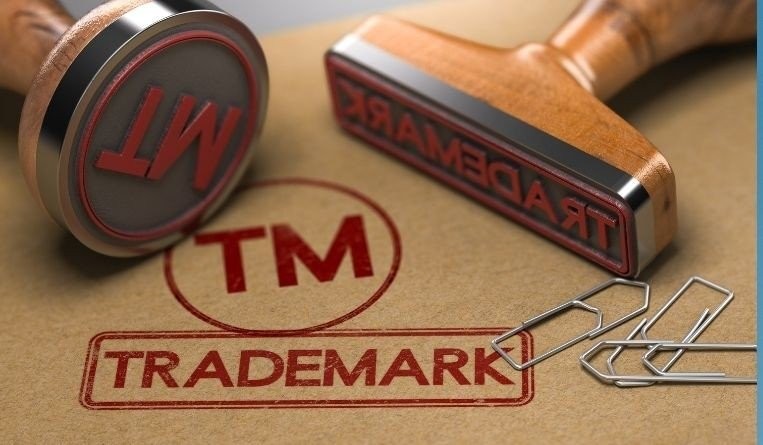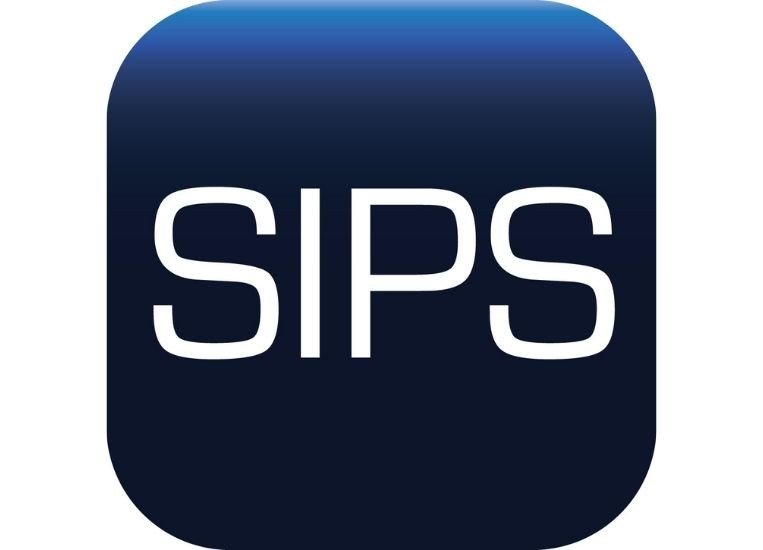The past year has seen a number of encouraging developments for brand owners confronting registry piracy in China, including greater proactivity on the part of the PRC Trademark Office (TMO) in rejecting bad faith trademark applications and the TMO becoming more receptive to brand owners’ reports drawing attention to bad faith applications in the process of preliminary examination.
Trademark owners are also enjoying greater access to decisions by the TMO, the Trademark Review and Adjudication Department (TRAD) and also the People’s Courts, making it easier to gather evidence in support of registry actions and administrative or civil litigation.
Perhaps most remarkably, 2020 also witnessed the first administrative fines against pirate applicants and the trademark agencies that assist them, as permitted under the latest amendment to the PRC Trademark Law, effective November 1, 2019.
Also notable was the TRAD’s issuance in January 2021 of a decision that explicitly refers to notarized oral admissions from a pirate as a factor in its ruling. This decision hopefully reflects the beginning of a trend away from prior practice, under which the TRAD and TMO refrained from explicitly acknowledging such evidence.
Finally, Michael Jordan finally seems to have secured more satisfying results in his long-standing battles with Qiaodan Sports Co., Ltd., as decisions were issued in late-2020 that now severely limit how this notorious pirate can enforce and even use its registrations for the Chinese name for Jordan, pronounced QIAO DAN (乔丹).
Details of these and other relevant developments over the last year follow below.
Rejection of bad faith applications
The November 2019 amendments to the Trademark Law provided authorities with stronger tools for rejecting and invalidating bad faith trademark filings (for an overview of the amendments, see SIPS update here), the most significant of which was the addition of the following language in Article 4: “Bad faith trademark registration applications not made for the purpose of using the trademark shall be rejected.”
Shortly before the law entered into effect, the Several Regulations on Standardizing the Application and Registration of Trademarks (Standardization Regulations) were promulgated, clarifying the TMO’s ex officio powers to reject bad faith trademark applications, i.e., without third parties having to first file oppositions. (See SIPS update on the Standardization Regulations here.) During 2020, the TMO also began rejecting pirate applications – allegedly in the hundreds of thousands – and publishing some of its decisions doing so online. In November 2020, the China National Intellectual Property Administration (CNIPA) reported having commenced a campaign targeting online ads for the sale of trademark registrations, leading to the deletion of ads for over 1.6 million marks held by 2,500 warehousers.
Interference letters
Prior to amendment of the Trademark Law, officials had indicated plans to create a database of bad faith actors intended for sharing among the TMO, the TRAD and the Beijing courts.
Although the TMO has not formally acknowledged the existence of such a blacklist, it is clear from TMO decisions that it is checking the filing history of applicants where bad faith is alleged. Also, the TMO has been receptive to brand owners filing informal reports (also known as interference letters) before pending applications are examined. These reports allow wider circumstances to be brought to an examiner’s attention, including a pirate’s history of bad faith filings. This has resulted in the rejection of a number of applications, sparing rights owners from the expense and uncertainty of filing oppositions.
SIPS is now recommending that clients monitor the TMO’s online database of registered and pending marks, identifying problematic marks well before they are gazetted. It is also suggesting contacting other victim brands to encourage their own filing of interferences, oppositions, invalidations, etc., with the aim of persuading the authorities to take firmer action in cases that might otherwise be considered borderline.
Publication of decisions
In early 2020, the TMO began uploading a portion of the rejection notices issued against bad faith filers to its public database. These decisions are currently only searchable by inserting the pirate’s name or the relevant application number.
The TMO also began publishing all oppositions decisions in January 2020. The TRAD has been publishing all of its decisions since December 2017.
The Beijing IP Court’s decisions are only published once they become final, i.e., either after any appeals to the Beijing Higher People’s Court are decided or where the court’s decisions have not been appealed.
Definition of bad faith
The Standardization Regulations set out criteria for determining when a trademark has been filed in bad faith. The TMO is expected to issue detailed rules further clarifying the definition of “bad faith” in the first half of 2021.
In the meantime, the Beijing Higher People’s Court’s Trial Guidelines for Administrative Cases Involving the Granting and Verification of Trademark Rights (Trial Guidelines) have proven helpful in raising inferences of bad faith. They explicitly provide that bad faith will be inferred where a pirate targets different trademarks belonging to a particular trademark owner and they also encourage adjudicators to consider the full prosecution history for disputed marks, including acts by prior owners. This should make it harder for pirates to disavow acts of previous owners of a pirate mark.
Fines against bad faith filers and their trademark agents
The amendments to the Trademark Law and the new Standardization Regulations grant Market Supervision Bureaus (MSBs) the power to issue warnings and impose administrative fines against trademark pirates and their agents.
To date, there have been a number of reports of cases where local MSBs have imposed fines against bad faith filers and trademark agents. More such cases are likely in 2021.
Following a complaint by a victim brand owner in May 2020, the Wenling Municipal MSB investigated a pirate that had filed 78 trademark applications. Noting that this was an excessive number for a company that had not yet started trading, the MSB concluded that the applications had been filed in bad faith. The case was reported to the TMO, which rejected 67 of the pirate’s applications and the MSB fined the pirate Rmb7,000 (US$1,080). It also asked for the trademark agency assisting the pirate to be punished.
In another case reported in January 2021, a trademark agency was fined by the Yixing Municipal MSB for accepting instructions for trademark registration applications when it knew that they were not being made for the purpose of use. Interestingly, the legal representative of both the trademark agency and the applicant company were one and the same person. The Yixing MSB collected evidence that this person had been touting the trademarks for sale since 2018 in the “Friends Group” of his WeChat account. The fines imposed were again nominal – Rmb10,000 (US$1,550) for the agency and Rmb5,000 (US$775) for the legal representative – reportedly because they were cooperative during the investigation, ceasing sales of the trademarks in question, cancelling the marks and proactively mitigating the harmful consequences of their illegal acts.
Cooperating with the authorities is no guarantee of a lower fine. In a case reported in September 2020, the Panyu District MSB noted an agency’s proactive cooperation in rectifying its acceptance of instructions from trademark pirates, but nevertheless still fined the agency Rmb60,000 (US$9,300) and the directly responsible person Rmb20,000 (US$3,100).
Under the Standardization Regulations, fines up to Rmb30,000 (US$4,600) against trademark pirates are possible where the pirate has generated illegal profits. Absent such profits, the maximum is Rmb10,000 (US$1,550). In addition, trademark agencies that knew or should have known that a client is filing trademark applications in bad faith may be fined up to Rmb100,000 (US$15,500) and the relevant authorities can stop accepting applications filed via the agency.
Under the Standardization Regulations, penalty data should be inserted to the PRC’s national enterprise credit information system. This can then lead to “social credit penalties”. (For an overview of China’s social credit penalty system as it relates to IP violators, see here.)
Oral admission by pirates
It has been long-standing practice in China for victims of bad faith piracy to submit notarized recordings of conversations in which the pirate admits to knowledge of the victim brand owner’s mark and/or its intentions for filing. Until recently, Chinese authorities have almost uniformly ignored such evidence, no matter how powerful it may seem.
But in a recent decision on a trademark invalidation filed by Heineken Brouwerijen B.V. against an unauthorized Chinese transliteration of HEINEKEN pronounced “HEI NI KEN”, the TRAD explicitly relied on a notarized audio recording between the pirate and a local investigator. The TRAD concluded that the recording: “showed both that the respondent was aware of the applicant and its HEINEKEN series of trademarks and also that the respondent’s ‘黑尼肯 [pronounced HEINIKEN in Chinese]’ mark was a translation of the applicant’s trademark.”
This finding allowed the TRAD to conclude that the disputed trademark conflicts with prior registrations by Heineken for its HEINEKEN mark in Class 32.
It remains unclear for now whether this decision reflects the start of a trend or whether it was just a happy one-off. But victim brand owners should strongly consider citing this decision in similar cases. (For more on the Heineken decision, see SIPS memo here).
Towards a common law?
In July 2020, China’s SPC issued the Guiding Opinions on Unifying the Application of Laws and on Strengthening Searches for Similar Cases (Trial Implementation) (Guiding Opinions), encouraging judges to search for relevant case decisions and refer to them in their judgments. The Guiding Opinions also encourage litigants to bring such cases to the court’s attention. SIPS and other firms have begun doing so systematically in appeal cases before the Beijing IP Court and Beijing Higher People’s Court.
Technically, under China’s Civil Law system, only decisions formally designated by the SPC as “guiding cases” are considered legally binding. But the Guiding Opinions reflect a trend where the SPC is encouraging courts to consider prior decisions as a means of ensuring more consistent results in cases involving similar facts and questions of law. (For more on the Guiding Opinions, see SIPS memo here).
Michael Jordan case – redux
One of the most famous examples of trademark piracy in recent years has been the registration and use of the surname in Michael Jordan’s Chinese name, pronounced QIAO DAN (乔丹). The registrant, Qiaodan Sports Co., Ltd., has not only been using the Chinese name QIAO DAN (乔丹) for around 20 years, but also a logo that is remarkably similar to that of the renowned American basketball player.
In retrial decisions issued in 2016, the SPC invalidated two of Qiaodan Sports’ registrations for QIAO DAN in Chinese (乔丹) and commented on the company’s obvious bad faith intent.
Subsequently, Qiaodan Sports attempted to enforce rights in its surviving QIAO DAN (乔丹) trademarks (marks that had already been registered more than five years and were therefore outside the normal time limit for invalidation), targeting Amazon’s Beijing affiliate in a civil action. In August 2020 the Beijing IP Court ruled against Qiaodan Sports, placing limits on its bad faith registrations: “The principle of good faith guarantees that parties have the right to exercise and dispose of their own civil rights and to exercise their litigation rights within the scope of the law. This presumes that parties use their rights in good faith and prudently, without harming third party interests or the collective public interest. Where any actions violate the purpose and spirit of the law, [or] their purpose is to harm the legitimate interests of others, [or they result in] obtaining and exercising rights in bad faith, or they disrupt the order of fair competition, they are an abuse of rights and their related claims should not be protected and supported by law.”
Reviewing Qiaodan Sports’ trademark filing history, the court concluded its registration of the QIAO DAN (乔丹) marks was improper and that “certain defects” therefore existed in Qiaodan Sports’ registration of the marks. For this reason, its exclusive trademark rights should also be subject to certain limitations.
Then, on December 30, 2020, the Shanghai No. 2 Intermediate People’s Court noted that the purpose of Qiaodan Sports’ trademark filings was to cause the public to be deceived or to allow the public to be deceived. The court noted that, in addition to registering QIAO DAN (乔丹), Qiaodan Sports had also registered Michael Jordan’s old shirt number (23) and the Chinese names of his two sons (Marcus Jordan and Jeffrey Jordan).
In the face of Qiaodan Sports’ bad faith and its continued ownership of the older registrations for QIAO DAN (乔丹), the court felt compelled “to counter the idea in the minds of the public that there are connections between the plaintiff [Michael Jordan] and the defendant [Qiaodan Sports].” To that end, the court is reported to have ruled as follows:
- Qiaodan Sports must publicly apologize to Michael Jordan in newspapers and on the internet, making it clear that Qiaodan Sports has no connection with Michael Jordan;
- Qiaodan Sports must stop using the mark QIAO DAN in its trade name and enterprise name;
- Qiaodan Sports must add “differentiating identifiers” if it makes any use of its QIAO DAN registrations (something that could perhaps render its original registrations vulnerable to cancellation for non-use in due course);
- Qiaodan Sports must pay Michael Jordan Rmb300,000 (US$46,450) in compensation for “emotional distress” in accordance with the PRC Tort Law; and
- Qiaodan Sports must also pay Michael Jordan’s reasonable litigation expenses of RMB50,000 (~US$7,700 – a modest, but symbolically useful gesture).
Future directions
Although the foregoing positive developments are encouraging, trademark piracy is rampant in China and likely to remain so until there are painful financial consequences for engaging in trademark piracy.
Through its work with industry associations and with individual clients, SIPS is continuing with efforts to persuade Chinese authorities to adopt further changes to address bad faith piracy, including the following:
- Accelerating and consolidating decision-making in appropriate cases, particularly where pirates have commenced use of the victim’s mark or threatened legal action as a means of securing excessive compensation through a forced transfer or licensing;
- Allowing victim brand owners to recover legal and investigation costs from bad faith pirates, perhaps by recognizing such filings as a form of unfair competition;
- Allowing local MSBs to impose administrative fines against bad faith pirates;
- Eliminating the five-year time bar on the filing of invalidations where the mark was deemed to have been filed in bad faith (currently only possible where the victim’s brand is deemed “well-known” or where the pirate is an obvious warehouser); and
- Encouraging adjudicators to accept notarized evidence of oral admissions by pirates secured through private investigators (even if only as corroborating evidence).









